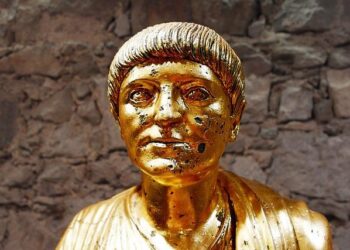North Macedonia is witnessing a tense political showdown as rival Albanian parties gear up for a crucial election battle, underscoring deep divisions within the country’s ethnic Albanian community. The contest not only reflects longstanding inter-party rivalries but also carries significant implications for the broader political landscape and stability in the ethnically diverse Balkan nation. As voters prepare to head to the polls, the fierce competition among Albania’s leading political forces could reshape alliances and influence government formation in North Macedonia’s delicate multi-ethnic framework.
Albanian Parties in North Macedonia Vie for Dominance Amidst Rising Ethnic Tensions
As North Macedonia approaches a crucial electoral cycle, the competitive spirit between the ethnic Albanian parties has intensified, signaling a potential shift in political power dynamics. Parties such as the Democratic Union for Integration (DUI) and the Alliance for Albanians (AA) are aggressively campaigning to consolidate votes within the Albanian community, which constitutes approximately 25% of the country’s population. This rivalry is not only centered around traditional policy platforms but also around more emotive issues tied to ethnic recognition, language rights, and economic development priorities.
The increasing polarization within the Albanian electorate comes amid growing concerns over ethnic tensions across North Macedonia. Observers note that voter mobilization efforts frequently highlight identity politics, raising fears that the election could exacerbate interethnic divisions. Below is a comparison of the main Albanian parties’ key campaign focuses:
| Party | Policy Priorities | Electoral Strategy |
|---|---|---|
| Democratic Union for Integration (DUI) |
| Alliance building with major Macedonian parties to secure stable governance |
| Alliance for Albanians (AA) |
| Appealing to younger voters and grassroots supporters with reformist rhetoric |
Policy Differences and Electoral Strategies Shape the Political Landscape
The competition between North Macedonia’s leading Albanian parties is deeply rooted in distinct policy agendas and ambitious electoral tactics. While both factions vie to represent the Albanian minority’s interests, their approaches diverge significantly. One party emphasizes economic development and stronger integration with Euro-Atlantic institutions, positioning itself as a modernizing force. In contrast, its rival champions cultural preservation and greater autonomy, appealing to voters prioritizing identity politics. This ideological split fuels a dynamic campaign environment, with each side tailoring messages to resonate with different segments of the Albanian community.
Electoral strategies deployed by these parties reflect a nuanced understanding of the voter base. Key tactics include:
- Grassroots mobilization: Engaging diaspora communities and rural voters through targeted outreach efforts.
- Social media campaigns: Leveraging digital platforms to influence younger electorates with emotive content and real-time interaction.
- Coalition building: Negotiating alliances with smaller ethnic parties to consolidate support ahead of election day.
| Party | Core Focus | Target Demographic | Key Strategy |
|---|---|---|---|
| Party A | Economic progress & Euro-integration | Urban youth & professionals | Digital outreach & policy forums |
| Party B | Cultural identity & autonomy | Rural communities & elders | Community rallies & diaspora events |
Calls for Dialogue and Electoral Reforms to Ensure Fair Representation
Amid escalating tensions between North Macedonia’s rival Albanian parties, prominent voices from civil society, political analysts, and international observers have intensified their calls for constructive dialogue and comprehensive electoral reforms. These stakeholders argue that without meaningful changes to the electoral framework, the risk of marginalization and underrepresentation of Albanian communities will persist, exacerbating political fragmentation and social discord. Key demands include the introduction of transparent candidate selection processes, equitable vote-weighting mechanisms, and safeguards against electoral manipulation, all designed to foster trust and legitimacy in the electoral outcomes.
To better illustrate these reform priorities, experts have highlighted the following focal points:
- Proportional representation adjustments to better reflect the demographic realities of Albanian communities within multi-ethnic municipalities.
- Enhanced electoral oversight bodies with independent mandates to ensure compliance and fairness during campaigns and vote counting.
- Institutionalized dialogue platforms that engage party leaders, civil society, and minority representatives ahead of elections to preempt conflict.
| Reform Area | Current Challenge | Proposed Solution |
|---|---|---|
| Candidate Selection | Lack of transparency | Open primaries and public vetting |
| Vote Weighting | Disproportionate influence | Population-based adjustments |
| Electoral Oversight | Partisan control | Independent supervisory bodies |
| Dialogue Mechanisms | Political fragmentation | Formalized platforms for negotiation |
Key Takeaways
As North Macedonia approaches its pivotal elections, the rivalry between the country’s Albanian parties highlights the complexities of its multi-ethnic political landscape. With both sides vying for influence and voter support, the outcome will not only shape the future of Albanian representation but also impact the broader dynamics of governance and interethnic relations in the region. Observers remain keenly attentive as the battle for supremacy unfolds, underscoring the ongoing challenges and aspirations within North Macedonia’s democracy.
















